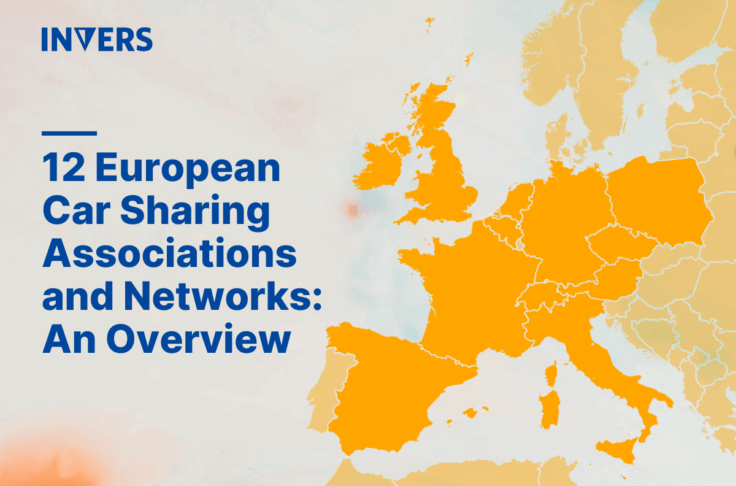
Travel Tech Startup Cabana Uses CloudBoxx from Invers for its Fleet of Luxury Campervans

- Contactless digital camper rental with CloudBoxx from Invers
- Reliable and scalable telematics enable and drive growth
- Combines convenience of carsharing with rising glamping trend
Vancouver/Siegen, August 24th, 2021 – Travel tech startup Cabana uses CloudBoxx from Invers to enable app-based access to customers renting one of the company’s campervans. The Seattle-based company was founded in 2020 with the aim to reinvent modern travel with a new experience that combined the freedom of camping with luxurious comfort. Cabana offers a fully digital rental process with contactless booking, check-in and check-out. After its successful launch and growth throughout the Seattle and Los Angeles markets, the company secured an additional $10 million in funding for further expansion.
The company has designed and built a fleet of upscale, custom mobile hotel rooms to give travelers the freedom to explore and sleep where and when they want. With Invers’ telematics, Cabana offers flexibility and convenience to its guests in the form of contactless booking, check-in and check-out. “Cabana travelers experience carefree adventure without the friction that plagues traditional ways to travel,” said Burton Miller, Cabana VP of Engineering. “Thanks to Invers, we have a powerful technology partner that enables us to fully digitize our vehicles and the rental process. The telematics solution guarantees maximum reliability and scalability, which is critical as we continue to grow. At the same time, Invers is able to provide comprehensive technical support to help us scale.”
Cabana’s mobile hotel experience is popular due to the growing interest in glamping and van life. Upscale, nature-oriented vacations have been a major trend in the tourism industry for several years, reaching a global market size of 1.88 billion US dollars in 2020. Experts from Grand View Research expect an average annual growth of 14.1 percent from 2021 to 2028, with North America growing the fastest at 16.7 percent.
There is an increasing desire to travel to less popular, outdoor destinations to avoid crowded spaces, and the 18-32 year old age group makes up a large portion of this market share at 44.6 percent. “Our experience is that this user group expects a flawless digital experience for all mobility services they use,” says Alexander Kirn, Invers CEO. “Our solution provides a digital twin of the campervan, enabling Cabana’s software developers to create highly convenient and automated mobility services. The vehicle becomes a programmable object in code to allow features like remote access, locating, unlocking, immobilizing, tracking fuel level, maintenance information and more. Our telematics technology ensures reliable vehicle connectivity at all times, providing vehicle data and commands as fundamental building blocks for innovative mobility service offerings.”
Invers CloudBoxx technology supports Cabana in its guarantee that customers can reserve, check-in, check-out, and open and start the vehicle from any location at any time. Currently, Cabana operates 35 vehicles in Seattle and Los Angeles with plans to expand the fleet by another 100 vehicles and offer a four-passenger van that can accommodate young families.
About Invers
Invers, inventor of automated vehicle sharing, enables mobility service providers to launch, operate and scale their offerings with integrated hardware and software solutions specifically designed for developers of shared mobility services. As the world’s first shared mobility technology company, Invers is developing and reliably maintaining the fundamental building blocks at scale to offer its customers cost-efficient and easily implementable tech solutions.
The company acts as an independent and reliable partner for operators of services such as car sharing, scooter sharing, ride pooling and car rental with the vision to make the use of shared vehicles more convenient and affordable than ownership. Customers include ShareNow, Enterprise CarShare and CarClub, Miles, Getaround, Flinkster, TIER, Bounce and Emmy. The company was founded in 1993 and has locations in Siegen, Cologne and Vancouver. The development takes place entirely in Germany. www.invers.com
About Cabana
Cabana offers a new experience for travelers: luxury comfort and the freedom of mobility. The company has designed and built a fleet of upscale custom-made mobile hotel rooms to give travelers the freedom to travel and sleep where they want and when they want. Enabled through tech, Cabana brings guests digital convenience and peace of mind through contact-free booking, check-in, and check-out. Whether a seasoned weekend camper or a first-time leisure renter, Cabana lets you indulge in van life for a unique adventure like never before. www.cabana.life


